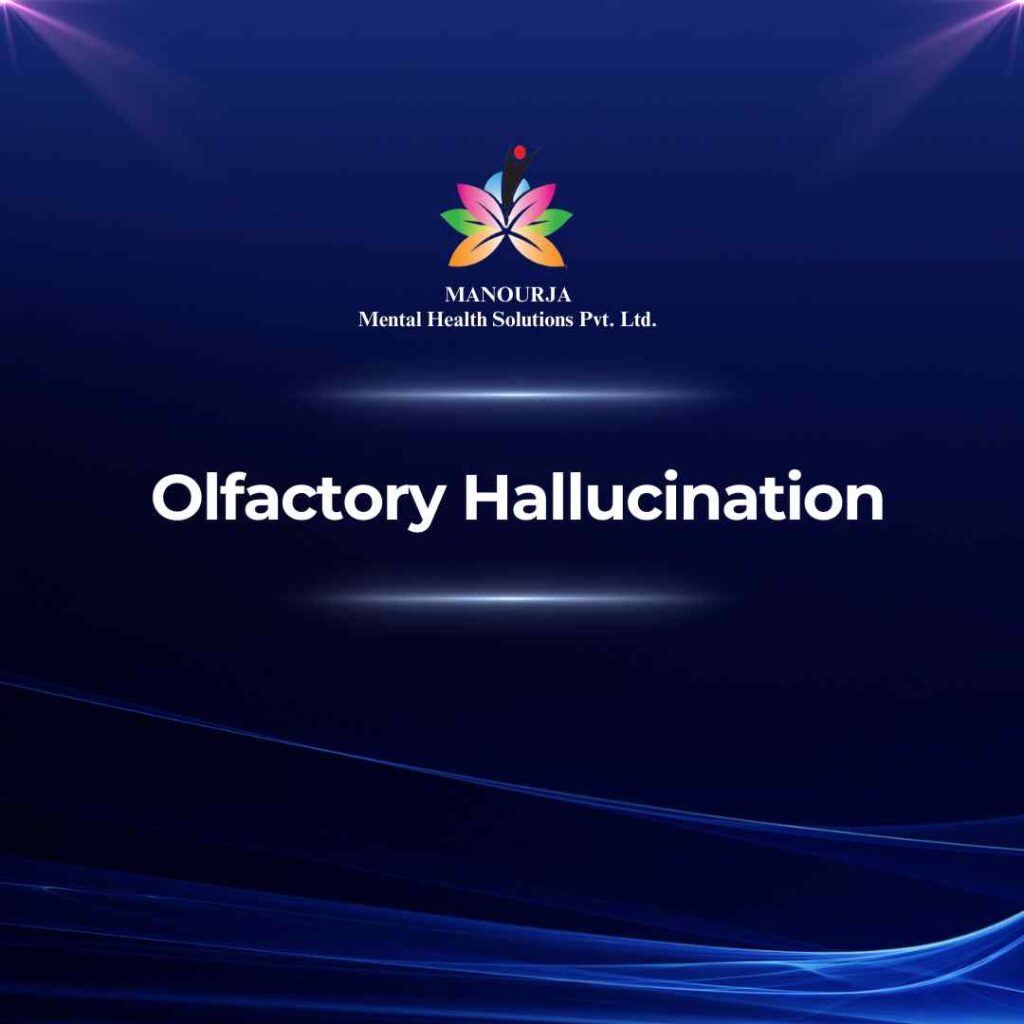Olfactory Hallucination

“Olfactory hallucination” refers to the perception of smell in the absence of any actual external odor or stimulus. Unlike normal perceptions of smell, which result from the detection of odor molecules by the olfactory system, olfactory hallucinations are false perceptions that can occur in various mental health and neurological conditions.
Olfactory Hallucination as a Sign and Symptom of Mental Illness
Olfactory hallucinations are considered a sensory hallucination, where individuals perceive smells that are not present. These hallucinations can be vivid and may involve pleasant, neutral, or unpleasant odors. Olfactory hallucinations are typically associated with abnormalities in the brain’s processing of sensory information rather than with the actual presence of external stimuli.
Mental Illnesses with Olfactory Hallucinations as Symptoms
Olfactory hallucinations can occur in several mental health disorders, including:
- Schizophrenia: Olfactory hallucinations can be a feature of schizophrenia, where individuals may perceive strange or unpleasant smells that others do not detect. These hallucinations can contribute to the overall sensory disturbances experienced in psychosis.
- Temporal Lobe Epilepsy: Seizures originating in the temporal lobes of the brain can cause sensory hallucinations, including olfactory hallucinations. These may occur as part of the aura preceding a seizure or during a seizure itself.
- Parkinson’s Disease: Olfactory hallucinations can occur in Parkinson’s disease, particularly in advanced stages. These hallucinations may involve perceptions of odors that are not present, often as a result of changes in brain function associated with the disease.
- Dementia with Lewy Bodies: This type of dementia can involve fluctuating cognitive symptoms, visual hallucinations, and olfactory hallucinations as part of its clinical presentation.
- Migraine Aura: Some individuals with migraines may experience olfactory hallucinations, often described as smelling strange odors or scents during the aura phase preceding a migraine headache.
- Substance-Induced Psychosis: Intoxication with certain substances, such as hallucinogens or stimulants, can lead to sensory hallucinations, including olfactory hallucinations.
Managing and Treating Olfactory Hallucinations
Treatment for olfactory hallucinations focuses on addressing the underlying cause and managing associated symptoms:
- Medication: Antipsychotic medications, antiepileptic drugs, or medications targeting specific symptoms may be prescribed based on the underlying condition.
- Cognitive-Behavioral Therapy (CBT): CBT and other forms of psychotherapy can help individuals cope with and manage the distress associated with hallucinations.
- Supportive Care: Providing a supportive environment, education about the nature of hallucinations, and strategies for managing stress can help individuals and their families cope with olfactory hallucinations.
- Medical Management: Regular monitoring and management of underlying medical conditions, such as epilepsy or Parkinson’s disease, are crucial in reducing the frequency and severity of olfactory hallucinations.
Recognizing olfactory hallucinations as a symptom of an underlying mental or neurological disorder is essential for accurate diagnosis and effective treatment. Addressing the underlying cause and providing appropriate support can help improve overall quality of life for individuals experiencing olfactory hallucinations.
At MANOURJA, we believe in the transformative power of counseling. Our experienced therapists offer a safe and supportive space where you can explore your thoughts, emotions, and challenges. Through personalized counselling sessions, we’ll work together to develop coping strategies, build resilience, and achieve lasting positive change. Discover the path to a healthier, happier you with MANOURJA counselling services.
MANOURJA Rehabilitation Services
At MANOURJA, we’re dedicated to helping you in rebuild your life, after difficult times. Our rehabilitation services focus on understanding what you need to move forward, whether you’re recovering from addiction, trauma, or any psychological – social challenges. We create personalized plans, that are all about helping you, regain your strength and find hope again. With a caring team by your side, you’ll have the support to make real progress and take steps toward a brighter, healthier future.
